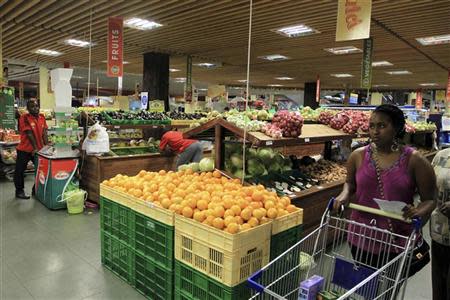Kenyan inflation jumps to 8.29 pct, tightening likely

NAIROBI (Reuters) - Kenya's year-on-year inflation rose for the fourth straight month to 8.29 percent in September from 6.67 percent the previous month, the statistics office said on Monday, raising the likelihood of an interest rate rise in November. Prices of nearly all items went up at the start of September after the government revised the law on value added tax (VAT), making all goods taxable apart from basics. The rise affects milk, but flour is exempt. Authorities prefer to see inflation at between 3.5-7.5 percent, meaning the central bank's next rate-setting meeting in November will be keenly watched by markets for a possible hike. "Their decision will be crucial in terms of containing the inflationary threats the country faces," said a trader at a leading commercial bank. The central bank has left rates unchanged at 8.5 percent since May. Prices of food and non-alcoholic beverages rose by 12.55 percent from the same month last year, the statistics office said. Transport prices were also higher, and only communications costs fell. Traders said the shilling, which surprised many by strengthening against the dollar in the wake of a shopping mall attack claimed by Somali militants al Shabaab, in which dozens of people were killed, could gain further. "Generally, when inflation goes up it means interest rates will rise so the shilling could strengthen as costs of carrying long dollar positions rise," a trader said. In neighbouring Uganda, inflation rose to its highest in more than a year in September, the government said on Monday, pushing the currency higher against the dollar due to expectations of further policy tightening. Headline inflation rose to an annual 8 percent from 7.3 percent in August, fuelled by high food prices. Core inflation, which excludes food crops, fuel, electricity and metered water, rose to 6.9 percent this month from 6.6 percent last month and was significantly higher than the Bank of Uganda's medium-term target of 5 percent.

 Yahoo Finance
Yahoo Finance 